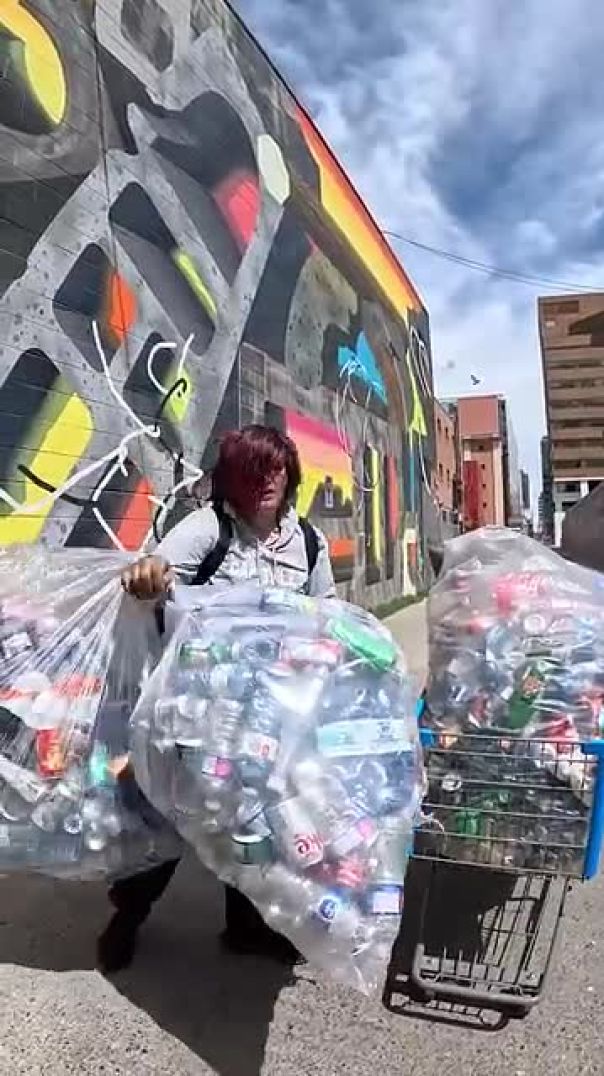1 Views· 11 November 2022
http://www.engvid.com/ Are you studying English to do better in business? I would like to point out that the following business English phrasal verbs will help tp bail you out in meetings, and can help you figure out how to make it to the top in your career. Watch this lesson now... before your colleagues figure out your secret weapon: EngVid (and Mr. E.)!!! Take the quiz here: http://www.engvid.com/out-phrasal-verbs/
TRANSCRIPT
"Going out with my baby. Going out to -- " Hi. James from www.engvid.com. Excuse me for a second. Don't mean to make you wait, but I've just got to put down Mr. E because he knows something you don't know about. And what he knows is it's story time. See? He's relaxing, in repose, relaxing. Why? We're going to do some business phrasal verbs, okay? And these business phrasal verbs -- I should explain quickly what a phrasal verb is. It's a two to three-word verb, okay? In which the particle modifies the verb. I prefer to teach particles because usually you know what the verb means. You just want to know how the particle changes it. Right? Cool. So in this case, it's for business because these phrases or phrasal verbs are often used in business. And I want to tell you a story. James is going to tell you a story today. Why a story? I'll tell you the story. I will explain the phrasal verbs, and then you can check after if you understood.
One time, a long time ago -- say, year 2000 -- in a country called America -- and for some people who are complaining about me saying "America", "America" is what we call the United States of America because we live in Canada. British people also call it "America". Foreign people, you have a different way of calling our country, so it wouldn't be common for you to know this. So I can also say, in "the United States of America" they decided -- or actually, they figured out how to make more money and do less work, which they thought was brilliant. So they decided to contract out all of the work from their country to foreign countries. When they contracted out all of this work, some of the other American people that still lived there thought that they had really -- they had sold them out. They thought the companies were sellouts and had sold them out. The companies just wanted to sell out all of their products -- sell out of all of their products and wanted to do it as cheaply as possible. Now, because of that, what little workers remained had to work extra, extra hard, and they got burned out. It was really, really terrible, but the companies still wanted to make money -- wanted to roll out new products. Eventually, in the year 2008, all of these companies, including the banks, needed bailouts. And that's when,
boys and girls, we paid for all of their decisions that they figured out.
Now, some of you are going, "What the heck is this guy talking about?" So the first thing I want to do is go over what does "out" mean. Because, I mean, I know you know "contract" or "figure" or "sell", "burn", but maybe you don't know how they are modified by "out". And this is a business -- business phrasal verbs, so let's go to the board, okay? When we look at "out", you can see the arrow is moving. There's a room or something, a building, and the arrow is moving up this way. So the first one we look at is "outward movement". "Ward" means "direction". So it means "direction out", okay? The second means "not being inside". Duh! (In Canada, "duh" means "stupid". So you don't go "duh" because then I'll think you're stupid.) Anyway. Sorry. "You're stupid." -- correct way of doing it. So it means "not being outside". So if you move outside, then you're not inside. Kind of seems obvious, right? It also means "excluding" because anything that's not in the room is not part of the room. So it's "excluded", "not part of", yeah? "Completing": Well, when you close the door, the room is completed, and there's no access to it, "completing". And "doing thoroughly". Okay, you got me. I don't know why "doing thoroughly". It just means "completing". "Doing thoroughly" is similar to "completing". It means "going through the job completely, in all ways". So when you do something "thoroughly", you do it properly, or you do a complete job. They seem similar. Don't worry. I'll explain.
First, let's talk about "contract out". What does that mean? Well, a "contract" -- you'll notice I have a contract up here. It's a document between two or more parties, saying they will work together, "con" meaning "with", and "tract" means to "pull together". Well, when we contracted -- sorry, companies contract work. What it means is to give a job to somebody outside of your company. So it means people in your company don't get the work; you give it to someone else, okay? So in some instances, some companies decided to make other countries make the product, and they would just sell the product. So jobs were lost because it was "contracted out" -- given to another company...





















![This was the Investment Opportunity of a Lifetime! Flipping to Max Set #17 [OSRS]](https://i.ytimg.com/vi/rY2qkvrd3ZQ/maxresdefault.jpg)





0 Comments